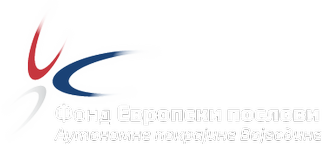Interreg VI-A IPA Romania Serbia
Budget:
IPA: 74,566,827.00 euros
Total (IPA + co-financing): 87,725,678.82 euros
Duration of the program:
01. January 2021 – December 31, 2027
PROGRAM WEBSITE:
https://www.romania-serbia.net/
Additional information:
PROGRAM DESCRIPTION
Interreg-IPA Romania-Serbia cross-border cooperation program (Interreg VI-A IPA Romania Serbia) is an initiative within the financial framework of the European
of the Union for the period 2021-2027, as part of the Instrument for Pre-Accession Assistance (IPA).
The program (Interreg VI-A) IPA Romania Serbia 2021-2027 was approved by the European Commission on July 19, 2022 and focuses on the development of the border area through measures
which focus on environmental protection and risk management, social and economic development and capacity building for border management. The program
(Interreg VI-A) IPA Romania Serbia 2021-2027 provides an opportunity for both countries to continue their cross-border cooperation within the framework of the new Instrument for Pre-Accession Assistance.
OBJECTIVES OF THE PROGRAM
Long-term goal: The long-term and overall goal of the Program is to improve people's health and quality of life, while at the same time strengthening the economy of the border area and turning climate and environmental challenges into opportunities.
THE SPECIFIC OBJECTIVES OF THE PROGRAM ARE
Objectives under priority 1:
Objective 1.1: Improving the protection and preservation of nature, biodiversity and greenery
infrastructure, including urban areas, and reducing all forms of pollution
Objective 1.2: Promotion of renewable energy in accordance with the Directive (EU)
2018/2001, including the sustainability criteria set out therein.
Objective 1.3: Promotion of energy efficiency and reduction of gas emissions
greenhouses
Objective 1.4: Promoting climate change adaptation and prevention
disaster risk and resilience, taking into account approaches based on
ecosystems.
Objectives under priority 2:
Goal 2.1: Improving equal access to inclusive and quality services in
education, training and lifelong learning through the development of accessible
infrastructure, including fostering resilience in education and training on
long distance and online.
Objective 2.2: Culture and tourism Ensuring equal access to health care
and fostering resilience of health systems, including primary care, and
promoting the transition from institutional to family-based care and
community
Objective 2.3: Strengthening the role of culture and sustainable tourism in economic development,
social inclusion and social innovation
Objectives under priority 3:
Objective 3.1: Improving the institutional capacities of public authorities, in particular
those who have a mandate to manage a certain territory, and those interested
sides
PROGRAM PRIORITIES
The program focuses on the following priorities and program goals:
Priority 1: Environmental protection and risk management
Objective 1.1: Improving the protection and preservation of nature, biodiversity and greenery
infrastructure, including urban areas, and reducing all forms of pollution
Objective 1.2: Promotion of renewable energy in accordance with Directive (EU) 2018/2001,
including the sustainability criteria set out therein.
Objective 1.3: Promoting energy efficiency and reducing greenhouse gas emissions
gardens
Objective 1.4: Promoting climate change adaptation and risk prevention
from disasters and resilience, taking into account ecosystem-based approaches.
Priority 2: Social and economic development
Goal 2.1: Improving equal access to inclusive and quality services in
education, training and lifelong learning through the development of accessible infrastructure,
including fostering resilience to distance and online education and training.
Goal 2.2: Ensure equal access to health care and encourage
resilience of health systems, including primary care, and promotion
transition from institutional to family and community-based care.
Objective 2.3: Strengthening the role of culture and sustainable tourism in economic and social development
inclusion and social innovation.
Priority 3: Increasing management capacity
Objective 3.1: Improving the institutional capacities of public authorities, especially those
who have a mandate to manage a certain territory, and interested parties
PROGRAM STRUCTURE
COUNTRIES PARTICIPATING IN THE PROGRAM
The territory covered by the Program includes the following regions equivalent to the level
NUTS 3:
In Romania:
Mehedinci county
Karaš-Severin County
Timis County
In Serbia:
North Banat district: Kikinda, Senta, Kanjiža, Ada, Novi Kneževac, Čoka
Middle Banat District: Zrenjanin, Novi Bečej, Nova Crnja, Žitište, Sečanj
South Banat district: Pancevo, Vršac, Plandište, Opovo, Alibunar, Bela Crkva,
Kovin, Kovačica
Danube District: Smederevo, Velika Plana, Smederevo Palanka
Braničevski district: Požarevac, Petrovac na Mlava, Žagubica, Malo Crniće,
Veliko Gradište, Kučevo, Žabari, Golubac
Bor district: Bor, Negotin, Majdanpek, Kladovo
INSTITUTIONS THAT CAN PARTICIPATE IN THE PROGRAM
- Central, regional and local levels of government with competences in the program area
- Institutions of social protection
- Employment services
- Healthcare facilities
- Non-governmental organizations
- Economic, craft and trade chambers
- Professional associations, associations of farmers and SMEs
- Unions
- Educational and research institutions
- Local and regional development agencies
- Public companies and public institutions
- Sports, tourist and cultural organizations
- Religious institutions
- National parks
COMPETENT BODIES FOR PROGRAM IMPLEMENTATION
GOVERNING BODY
MINISTRY OF REGIONAL DEVELOPMENT AND PUBLIC ADMINISTRATION OF ROMANIA
16 Libertatii Blvd.
Bucharest, Sector 5, Romania
JOINT TECHNICAL SECRETARIAT
Regional office for cross-border cooperation Timisoara
Proclamatia de la Timisoara Str. 5, 1st floor
300054 Timisoara, Romania
Contact information can be found at the following link:
PROGRAM CONTACT POINTS IN SERBIA
Ministry for European Integration, Government of the Republic of Serbia
Nemanjina 34, 11000 Belgrade, SERBIA
Tel./Fax: +381(11)3061-100/+381 (11)3061-110
E-mail: office@mei.gov.rs
www.mei.gov.rs
ANTENNA OF THE JOINT PROGRAM SECRETARIAT
Makedonska 11, 23 000 Zrenjanin, SERBIA
Phone: +381(0)23515965
E-mail: stana.babic@mei.gov.rs, biljana.guzina@mei.gov.rs
OFFICE-BOR
Moše Pijade 19, 19210 Bor, SERBIA
Phone: +381 30 458 295
E-mail: Vasilija. stanic@mei.gov.rs
DOCUMENTS
You can find all relevant documents on the website:
https://romania-serbia.net/2021-2027/programme/programming-documents/
CROSS-BORDER COOPERATION PROGRAMS
- IPA cross-border cooperation program Serbia – North Macedonia
- INTEREG IPA program of cross-border cooperation Hungary-Serbia
- INTEREG IPA cross-border cooperation program Romania-Serbia
- INTEREG IPA program of cross-border cooperation Bulgaria-Serbia
- INTEREG IPA PROGRAM OF CROSS-BORDER COOPERATION CROATIA-SERBIA
- Cross-border cooperation program Serbia – Bosnia and Herzegovina
- Cross-border cooperation program Serbia – Montenegro Gora

